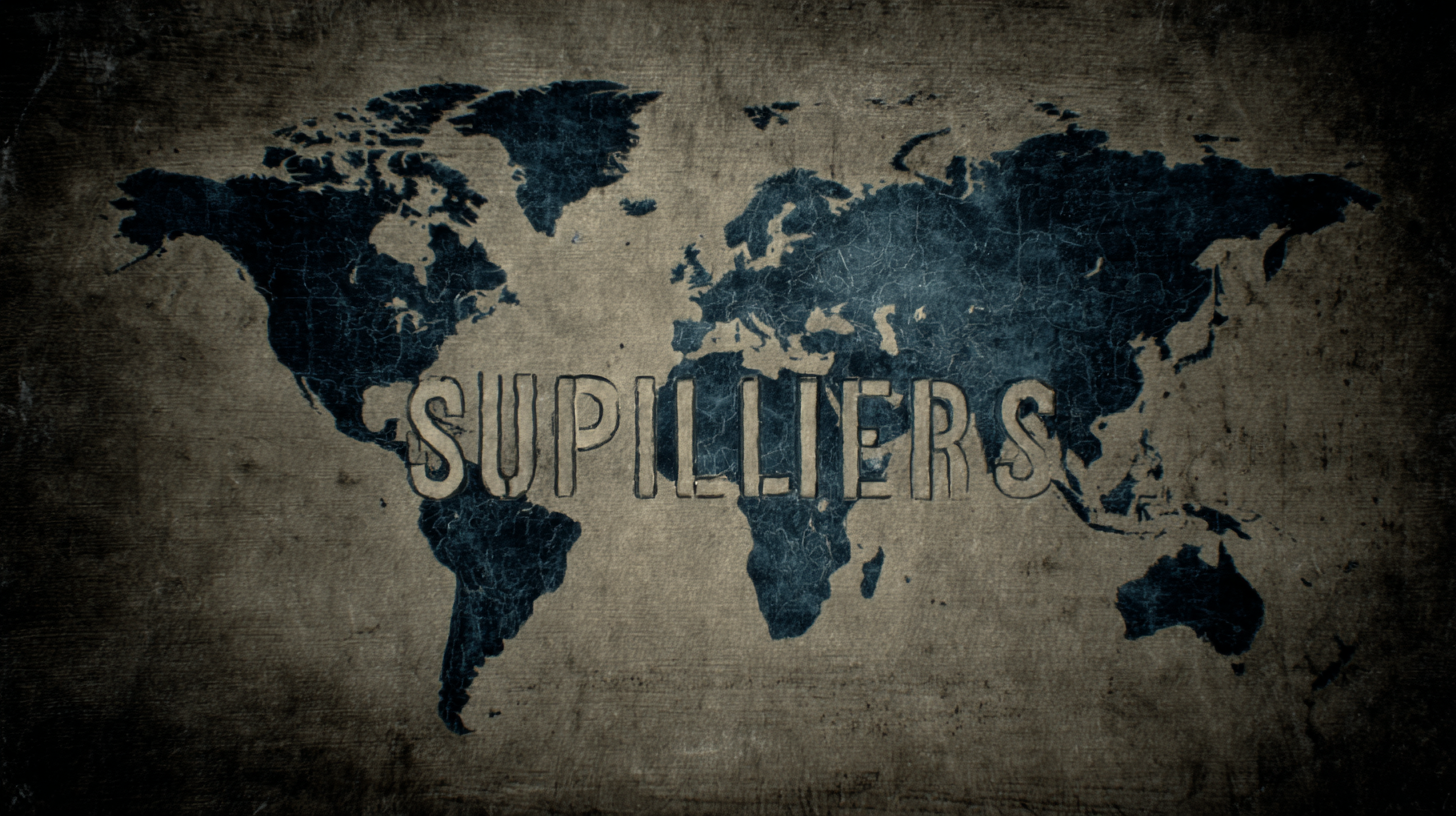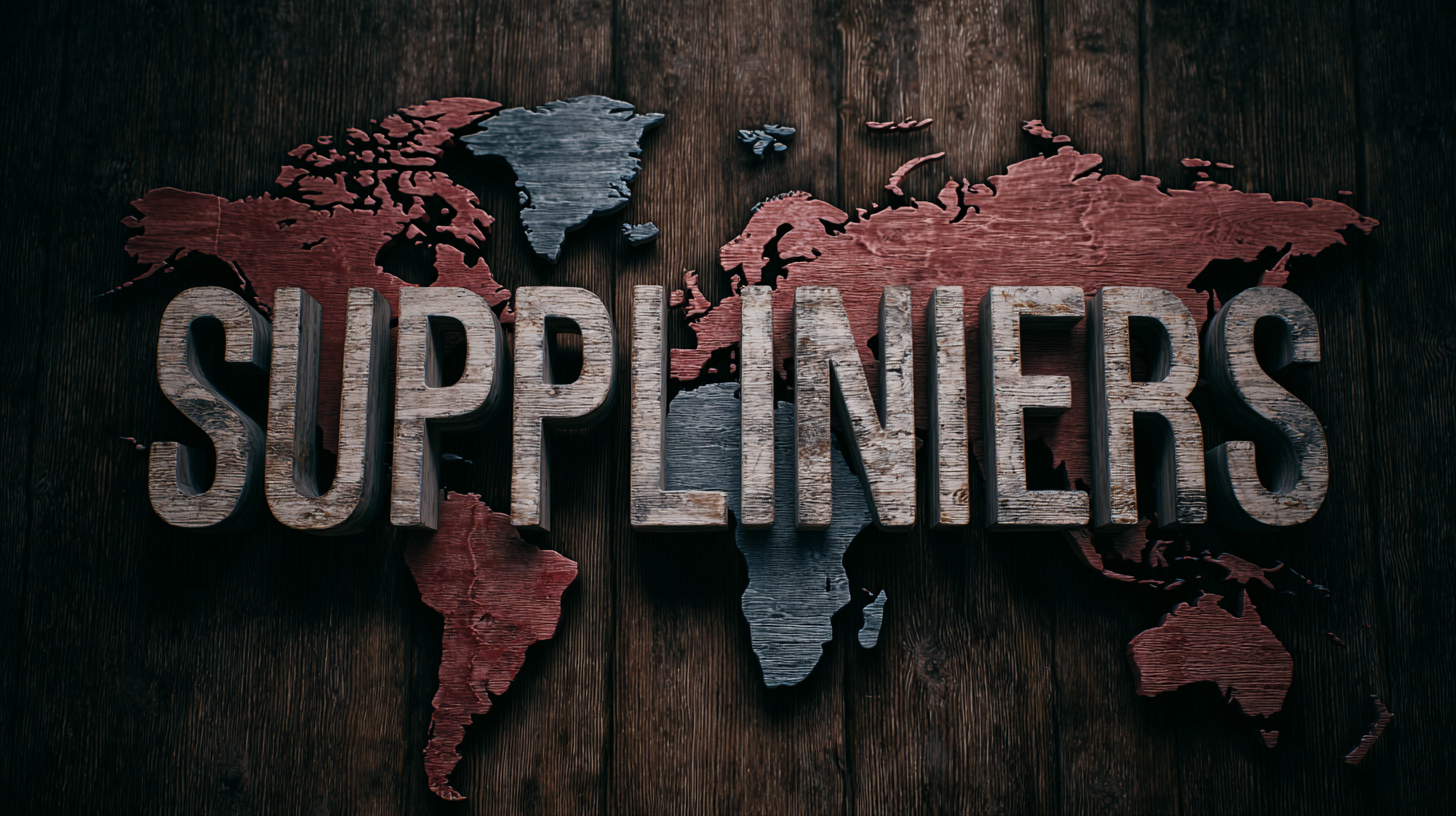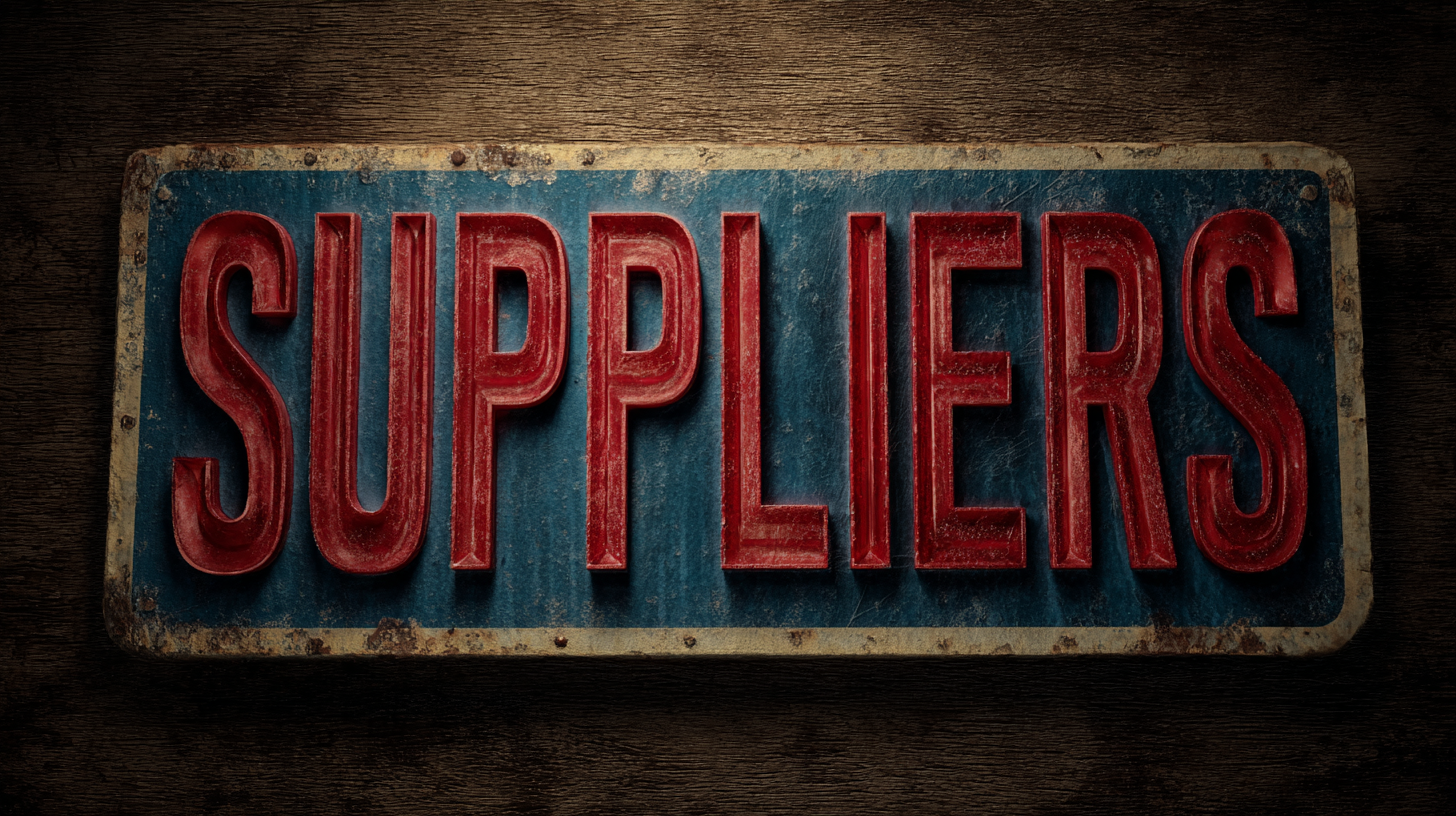

In the rapidly evolving landscape of global commerce, the significance of sourcing from the best suppliers cannot be overstated. According to a recent market analysis report by Statista, the global sourcing market is projected to reach approximately $2 trillion by 2025, reflecting a compound annual growth rate (CAGR) of 8.5% from 2020. This remarkable growth underscores the increasing reliance of businesses on effective supplier partnerships to enhance efficiency, reduce costs, and innovate product offerings. As industries embrace digital transformation and sustainability, understanding how to strategically navigate the supplier landscape is crucial for achieving competitive advantage. Hence, this blog aims to provide a comprehensive blueprint for sourcing from the best suppliers worldwide, ensuring organizations are well-positioned to thrive in an increasingly interconnected market.

When engaging in global sourcing, understanding import and export certifications is crucial for establishing robust supply chain operations. Certifications such as ISO, CE, and FDA serve as standardized benchmarks that not only verify product quality but also ensure compliance with international regulations. By securing the right certifications, businesses can minimize risks related to non-compliance, avoid tariffs, or even product recalls, ultimately safeguarding their market reputation.
Navigating the maze of import and export regulations can be daunting, yet it is essential for efficient sourcing from global suppliers. Different countries have varying certification requirements, and knowing these can facilitate smoother transactions. For instance, obtaining an Importer of Record (IOR) certification can streamline the import process by clarifying responsibilities and liabilities. Businesses should also keep abreast of trade agreements and changes in regulations as these factors can significantly impact sourcing strategies and operational costs in the long run.
| Supplier Type | Country of Origin | Product Category | Import Certification Required | Export Certification Required |
|---|---|---|---|---|
| Manufacturer | China | Electronics | CCC Certification | CE Marking |
| Distributor | Germany | Automotive Parts | EAC Certificate | ISO 9001 |
| Wholesaler | India | Textiles | GOTS Certification | FSSAI License |
| Retailer | USA | Cosmetics | FDA Approval | CITES Compliance |
| Exporter | Brazil | Agricultural Products | SPS Certificate | FITO Certificate |
 When it comes to sourcing from the best suppliers worldwide, identifying reliable partners is crucial. Key traits of dependable suppliers include transparency, communication skills, and a solid track record. A supplier that is transparent about their processes and pricing fosters trust and sets the stage for a successful partnership. Additionally, strong communication skills ensure that any issues can be promptly addressed, which is essential for maintaining smooth operations.
When it comes to sourcing from the best suppliers worldwide, identifying reliable partners is crucial. Key traits of dependable suppliers include transparency, communication skills, and a solid track record. A supplier that is transparent about their processes and pricing fosters trust and sets the stage for a successful partnership. Additionally, strong communication skills ensure that any issues can be promptly addressed, which is essential for maintaining smooth operations.
To evaluate potential suppliers, consider implementing a checklist that includes criteria such as quality assurance practices, customer service responsiveness, and delivery timelines. This will help you make informed decisions. Tip: Always ask for references or case studies from previous clients to assess their performance in real-world situations.
Another important aspect is to conduct on-site visits whenever possible. This firsthand experience allows you to evaluate their facilities, workforce, and overall working environment. Tip: Make use of social media and online reviews to gather insights on suppliers' reputations before committing to a partnership. Prioritizing these evaluation criteria will significantly increase your chances of establishing successful and long-lasting supplier relationships.
Navigating international trade regulations and compliance requirements is crucial for businesses seeking to source from the best suppliers worldwide. According to the World Trade Organization, global trade is expected to grow by 3.4% in 2023, emphasizing the importance of understanding the legal frameworks that govern cross-border transactions. Companies must stay informed about various regulations, such as tariffs, import/export restrictions, and trade agreements, which can significantly impact supply chain efficiency and costs.
Tip: Regularly consult official government resources and industry reports to stay updated on changes in trade regulations. Creating a compliance checklist can help streamline the process and ensure all necessary documentation is in place.
Moreover, understanding specific compliance requirements in target markets can mitigate risks. A recent report by Deloitte highlighted that 75% of companies face challenges related to regulatory compliance in international trade. Partnering with local experts or compliance consultants can provide invaluable insights into navigating these complex regulations, helping businesses make informed decisions and improve supplier relationships.
Tip: Invest in training your team on compliance best practices to bolster your organization’s capacity to navigate the regulatory landscape efficiently.

Building strong relationships with suppliers is essential for any business aiming for long-term success. Such partnerships provide not only stability but also enhance the efficiency of operations. When you prioritize relationship-building, you create a foundation of trust and open communication, which is crucial for negotiating better terms and resolving potential conflicts amicably. A well-established connection with suppliers enables you to gain insights into their capabilities, innovations, and any upcoming challenges they may face, allowing you to make more informed decisions.
Moreover, nurturing these relationships fosters collaboration and drives mutual growth. When suppliers feel valued and appreciated, they are more likely to go the extra mile, providing exceptional service and quality products. Regular engagement—whether through visits, calls, or sincere appreciation—creates a collaborative environment where both parties can share ideas and feedback. In this way, suppliers can actively contribute to your product development process, helping your business stay competitive in a rapidly changing market. Ultimately, investing in these relationships not only secures your supply chain but also lays the groundwork for a prosperous partnership that benefits both sides over the long haul.
This bar chart illustrates the importance of building strong relationships with suppliers for long-term partnerships. The data represents the percentage of companies that prioritize various factors when selecting suppliers.
Effective negotiation and cost management are critical components in sourcing from global suppliers. According to a report by the Aberdeen Group, organizations that excel in supplier negotiation can reduce procurement costs by up to 15%. This competitive edge not only boosts profit margins but also fosters long-term relationships with key suppliers. Developing a thorough understanding of market dynamics and supplier capabilities is essential for buyers to negotiate favorable terms. Leveraging data analytics tools can help in analyzing supplier performance metrics and benchmarking prices against industry standards, leading to more informed negotiations.
Additionally, a McKinsey study emphasizes the importance of adopting a structured approach to cost management in sourcing. By implementing category management and strategic sourcing frameworks, organizations can identify potential savings of up to 20%. This involves thorough market research, supplier risk assessments, and regular contract evaluations. Engaging in collaborative discussions with suppliers about cost structures can also pave the way for innovative solutions that align with both parties' goals, ultimately enhancing the overall efficiency of the sourcing process.